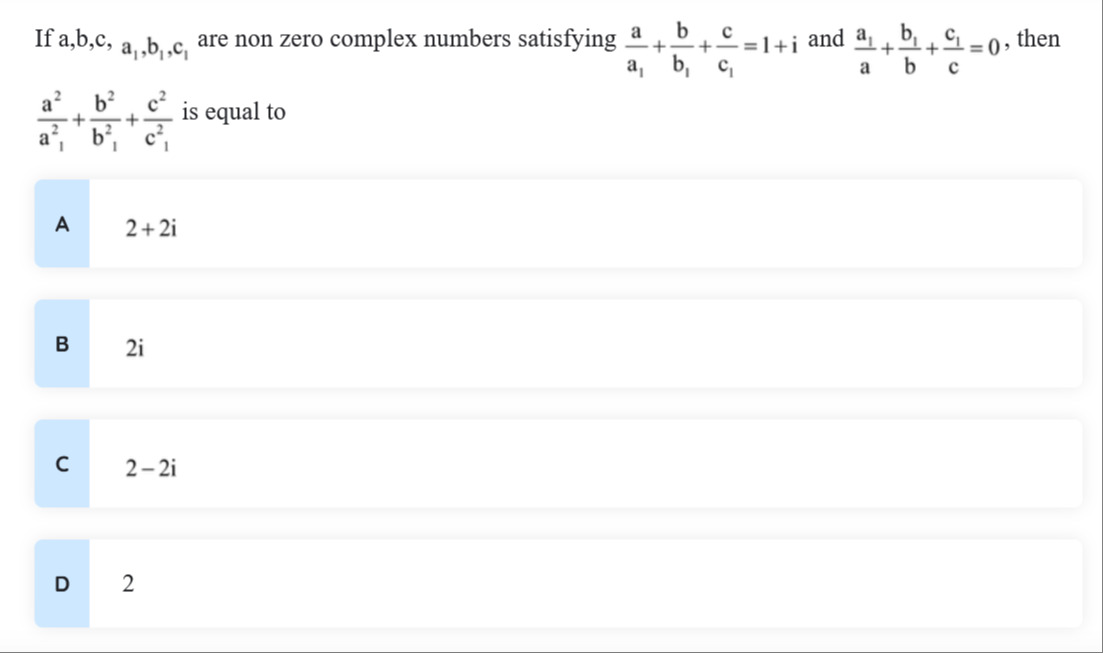Question
Question: If a,b,c, $a_1,b_1,c_1$ are non zero complex numbers satisfying $\frac{a}{a_1}+\frac{b}{b_1}+\frac{c...
If a,b,c, a1,b1,c1 are non zero complex numbers satisfying a1a+b1b+c1c=1+i and aa1+bb1+cc1=0, then a12a2+b12b2+c12c2 is equal to

A
2+2i
B
2i
C
2-2i
D
2
Answer
2i
Explanation
Solution
Let
x=a1a,y=b1b,z=c1c.
Then, the given equations become:
x+y+z=1+i and x1+y1+z1=0.
The second equation can be rewritten as:
xyzxy+yz+zx=0⟹xy+yz+zx=0.
We need to find:
x2+y2+z2.
Recall the identity:
(x+y+z)2=x2+y2+z2+2(xy+yz+zx).
Since xy+yz+zx=0, we have:
x2+y2+z2=(x+y+z)2=(1+i)2.
Now, compute (1+i)2:
(1+i)2=1+2i+i2=1+2i−1=2i.
Thus, a12a2+b12b2+c12c2=2i.
